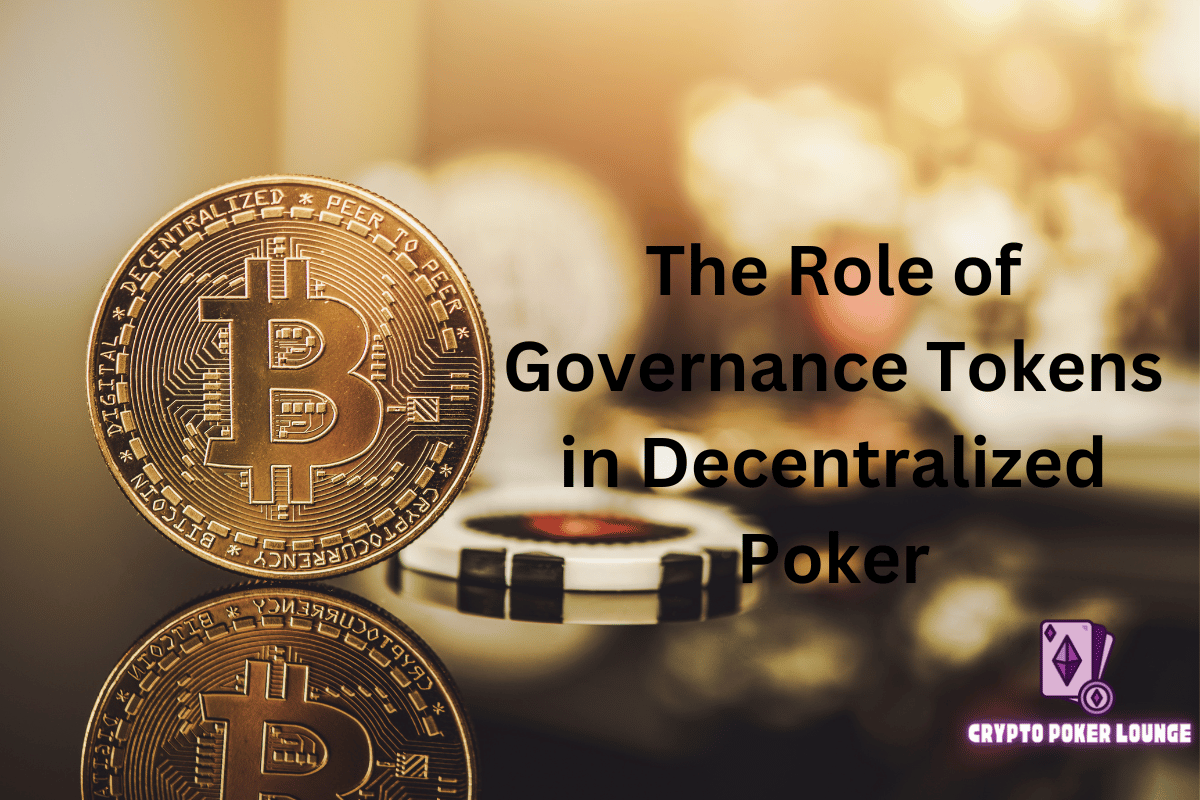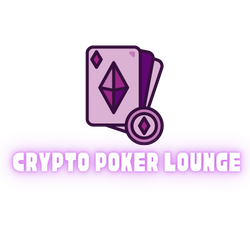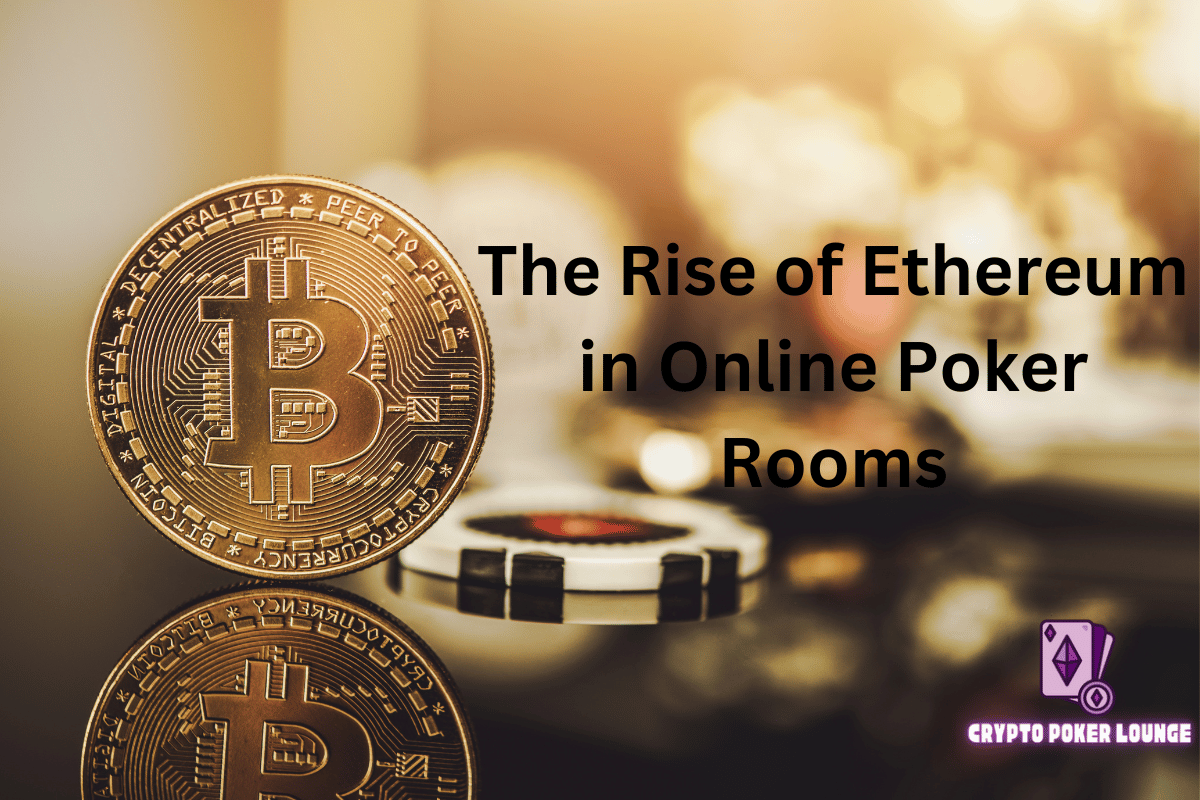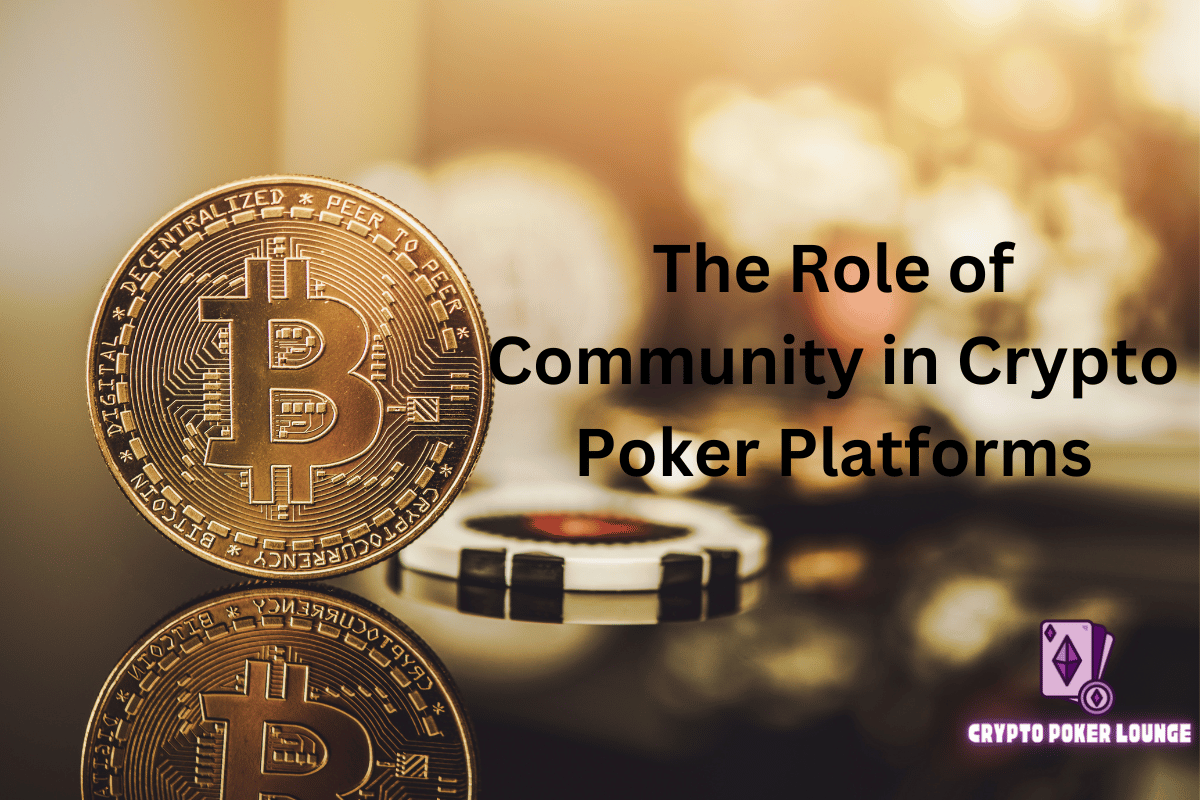
Imagine a scenario where a decentralized poker platform introduces governance tokens to its ecosystem, allowing players to have a say in the platform’s future developments.
The utilization of governance tokens in decentralized poker not only revolutionizes the way decisions are made but also opens up a realm of possibilities for enhancing player engagement and platform sustainability.
By exploring the intricate relationship between governance tokens and decentralized poker, we uncover a fascinating landscape where community empowerment intersects with technological innovation, shaping the future of online poker in unprecedented ways.
Understanding Governance Tokens
To comprehend the significance of governance tokens in decentralized poker, we must first grasp the fundamental concept of how these tokens operate within the ecosystem. Token economics plays a crucial role in the design and implementation of governance tokens. These tokens aren’t just a means of value exchange but also serve as a tool for aligning incentives within the community. Through the issuance and distribution of governance tokens, platforms can incentivize active participation and decision-making among users, thereby fostering a sense of community engagement.
In decentralized poker, governance tokens empower users to have a say in the platform’s development and direction. By holding these tokens, individuals gain voting rights and the ability to propose and vote on changes to the protocol. This democratic approach to governance ensures that decisions are made collectively, reflecting the interests and preferences of the community at large.
Voting Power and Decision Making
Understanding how governance tokens grant voting power and enable decision making is essential in exploring their role in decentralized poker platforms. Voting mechanisms play a crucial role in governance tokens, allowing token holders to participate in the decision-making process. Through various voting mechanisms such as on-chain voting or delegation, token holders can propose, discuss, and vote on changes or upgrades within the platform.
Decision consensus is a key aspect when it comes to governance tokens in decentralized poker. Achieving agreement among token holders on proposals or changes is vital for the smooth functioning of the platform. Different platforms may implement various consensus mechanisms such as majority voting, quadratic voting, or even futarchy to ensure fair and effective decision-making processes.
Governance Token Distribution
The distribution of governance tokens plays a critical role in shaping the power dynamics within decentralized poker ecosystems. Token economics are at the heart of how governance tokens are allocated. By carefully designing the distribution model, platforms can incentivize desired behaviors and ensure a fair and balanced governance structure.
Community engagement is key in governance token distribution. Platforms often allocate tokens to early adopters, contributors, and active community members to foster participation and loyalty. This not only helps in decentralizing power but also aligns the incentives of token holders with the long-term success of the platform.
Effective governance token distribution requires a deep understanding of the platform’s goals and values. By distributing tokens in a way that reflects these principles, platforms can build a strong foundation for decentralized decision-making processes. Balancing token distribution between various stakeholders is crucial to ensure a diverse and engaged community that can effectively govern the decentralized poker ecosystem.
Impact on Platform Development
Influencing the developmental trajectory of decentralized poker platforms, governance tokens wield a significant impact on the evolution of the ecosystem.
-
Platform Scalability: Governance tokens play a crucial role in decision-making processes related to platform scalability. Through voting mechanisms, token holders can propose and approve upgrades that enhance the platform’s scalability, ensuring it can handle increased user activity and transaction volume efficiently.
-
User Engagement: By holding governance tokens, users are incentivized to actively participate in the platform’s development. This engagement can involve voting on important decisions, providing feedback on proposed changes, and suggesting improvements that can enhance the overall user experience. Ultimately, governance tokens foster a sense of community and ownership among users, driving higher levels of engagement.
-
Development Prioritization: The presence of governance tokens can influence how platform development priorities are set. Token holders may advocate for features that improve user engagement, enhance platform scalability, or address pressing issues, guiding the development team in allocating resources effectively to meet the community’s needs.
Ensuring Fairness and Transparency
As we consider the role of governance tokens in decentralized poker, it’s crucial to address the necessity of ensuring fairness and transparency.
Fair gameplay verification, transparent reward distribution, and accountability through consensus are pivotal aspects that require meticulous attention.
Fair Gameplay Verification
Examining the mechanism for verifying fair gameplay in decentralized poker reveals the essential role governance tokens play in ensuring transparency and fairness within the ecosystem.
-
Immutable Record: Smart contracts powered by governance tokens create an immutable record of gameplay actions, ensuring that every move is transparent and tamper-proof.
-
Decentralized Consensus: Governance tokens enable decentralized consensus mechanisms, allowing players to validate the fairness of each game independently.
-
Fraud Prevention: Through token-based verification processes, fraudulent activities such as collusion or cheating can be detected and prevented more effectively.
Transparent Reward Distribution
Transparent reward distribution in decentralized poker is a pivotal aspect that ensures fairness and accountability among players in the ecosystem. By integrating robust incentive structures and tokenomics, governance tokens can be utilized to transparently allocate rewards based on predefined rules agreed upon by the community.
These mechanisms not only incentivize active participation but also foster trust and confidence in the system. Through transparent reward distribution, players can feel assured that their contributions are duly recognized and fairly compensated. Moreover, clear tokenomics help in creating a level playing field where rewards are distributed equitably, promoting a healthy and competitive environment.
Embracing transparent reward distribution through governance tokens is key to establishing a sustainable and inclusive decentralized poker ecosystem.
Accountability Through Consensus
In the realm of decentralized poker, ensuring fairness and transparency through consensus mechanisms is paramount for establishing a trust-based environment among players and stakeholders.
-
Consensus Validation: Utilizing blockchain technology, consensus algorithms like Proof of Stake or Proof of Authority ensure that all transactions and decisions are agreed upon by the majority, reducing the risk of fraud or manipulation.
-
Community Engagement: By involving players in governance decisions through voting mechanisms tied to governance tokens, decentralized poker platforms foster a sense of ownership and responsibility among participants, leading to a more engaged and committed community.
-
Transparency Measures: Implementing on-chain audits and public verifiability of outcomes allows for real-time monitoring of the platform’s operations, promoting transparency and accountability in decentralized poker ecosystems.
Future Trends and Innovations
As the landscape of decentralized poker continues to evolve, the integration of governance tokens is poised to revolutionize the industry’s future trajectory. Decentralized governance through these tokens allows for more transparent decision-making processes, empowering users to have a direct say in the platform’s development.
Token economics play a crucial role in incentivizing active participation and rewarding users for contributing to the network’s growth.
Moving forward, we can anticipate innovative trends such as the implementation of dynamic governance mechanisms that adapt to the evolving needs of the community. This flexibility will enable decentralized poker platforms to stay responsive to user feedback and market trends, fostering a more inclusive and democratic ecosystem. Moreover, advancements in tokenomics, including novel reward structures and governance models, will likely drive increased engagement and loyalty among players and stakeholders.
Frequently Asked Questions
Can Governance Tokens Be Used for Anything Other Than Voting on Platform Decisions in Decentralized Poker?
Yes, governance tokens possess diverse utility beyond voting in decentralized poker. They influence market dynamics, shape tokenomics, and enhance community engagement. Their multifaceted roles showcase the depth of their impact across platforms.
How Are Governance Token Holders Incentivized to Actively Participate in Decision-Making Processes?
Incentive structures drive community engagement by rewarding active participation in decision-making. Our governance token holders are motivated by benefits like exclusive rewards, voting power, and a sense of ownership, ensuring vibrant and democratic governance.
Are There Any Restrictions or Requirements for Acquiring Governance Tokens in Decentralized Poker Platforms?
To acquire governance tokens in decentralized poker platforms, eligibility requirements may exist. The acquiring process typically involves tasks like staking specific amounts of tokens, completing verification steps, or meeting certain community criteria for participation.
How Do Governance Tokens Impact the Overall User Experience and Functionality of Decentralized Poker Platforms?
Governance tokens in decentralized poker platforms enhance user experience by fostering community engagement through voting rights. These tokens extend utility beyond governance, empowering players to shape the platform’s direction and features, contributing to a dynamic ecosystem.
What Measures Are in Place to Prevent Manipulation or Bias in the Decision-Making Process Using Governance Tokens?
To prevent manipulation and ensure fairness, protocols employ transparent voting mechanisms, smart contract audits, and community oversight. These measures safeguard against bias and manipulation, fostering trust in the decision-making process using governance tokens.
Conclusion
In the world of decentralized poker, governance tokens act as the guiding compass, steering the platform towards success. Like skilled poker players holding their cards close, these tokens empower users to shape the future of the game.
As the stakes continue to rise, the influence of governance tokens will only grow stronger, ensuring a level playing field for all involved. The game of decentralized poker is evolving, and governance tokens are the ace up our sleeve.
Let’s play to win.


